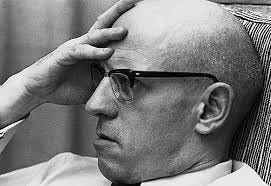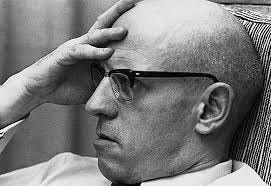Hello Gorgias! is a weekly newsletter devoted to writing, rhetoric, and long-form argument. If you’re enjoying my posts, please consider becoming a subscriber.
If you’re in the habit of reading theory, you’ve probably already encountered what Michael Foucault calls the “author function.”
The “author function” is not the writer of the text. It refers to the way readers invoke the writer’s name to bestow authority on a text.
Imagine that someone discovered a previously unknown work by William Shakespeare. As part of Shakespeare’s oeurve, it would immediately have enormous cultural influence, even if nobody actually liked it.
Simply put, certain writers are designated “authors,” which in turn determines which texts count as part of “the literature.”
Foucault’s point here is that the writer of the text and the author of the text are not the same. The former is the living, breathing person who actually wrote the text, while the latter is a function of the discourse around the text.
This makes sense when you stop and think about how easy it is to have one without the other. There are all sorts of cultural texts (from parking tickets to television shows) that were clearly written by someone, even if they weren’t “authored” by anybody. Similarly, I remember being disappointed as a child when I learned my favorite author (K.A. Applegate) was also the pen name for a series of ghostwriters that were hired to finish the Animorphs series.1
Foucault’s short essay on the “author function” is worth reading, so I won’t spoil the rest of it for you. For our purposes, one key takeaway is that the “author function” feeds into the myth of the solitary genius, which makes it hard to write.
More importantly, when you treat theorists as authors, you risk missing the moves they’re making as writers. This makes it hard to learn how to write theory.
So what’s the alternative? Foucault doesn’t say. But we can adopt a different function of discourse by approaching theory as a genre of writing.
The Genre Function
When most folks think of genre, they’re thinking of a system of classification that organizes narratives according to specific tropes or topics. Science fiction involves aliens, robots, and mad scientists, for instance, while westerns feature cowboys, saloons, and gunfights at high noon.
Rhetoricians often have a slightly more expansive definition of genre grounded in the work of Carolyn Miller, whose article “Genre and Social Action” helped shape the branch of rhetorical theory known as genre studies.
Like Foucault’s essay on the author-function, Miller’s piece is relatively short and worth reading in its entirety, but her main argument is that “a rhetorically sound definition of genre must be centered not on substance or the form of discourse but on the action it is used to accomplish.”
Let’s consider the example of the eulogy, an ancient genre that appears in every culture I know of. The content, style, and format of a eulogy are always variable, depending on the context. So what defines the eulogy as a coherent genre? According to Miller, it’s the recurring situation that elicits the discursive response — the event of death itself, which requires symbolic acknowledgement from the family and the community.
Years later, the rhetorician and writing studies scholar Anis Bawarshi took up Miller’s work to offer the “genre function” as a corrective to Foucault’s critique of authorship.
For Bawarshi, genres are ideological as well as rhetorical. They invite us to consider how our experience of reality is constructed and organized through language. Genres orient us toward recurring situations and teach us how to behave if we’re experiencing them for the first time.
In the example of the eulogy, the genre establishes social expectations for both the speaker and the audience, who must display the appropriate level of solemnity, respect, and decorum.
However, Bawarshi also expands on Miller’s original argument by describing how genres also produce recurrent situations through rhetorical conventions.
The ‘acknowledgements’ section of a book, for example, is a practice that evolved in response to changing social norms around writing and publication. It was adopted with a specific purpose and audience in mind. Over time, more people took up this practice, until it became a rhetorical situation that inaugerates every book of theory.
It’s not worth getting into the “chicken and egg” debate over whether situations precede genre conventions or vice versa. The only thing that matters for us as writers is that this relationship is bidirectional and grounded in use-value.
Genres are goal-oriented, insofar as they are shaped by the function they serve. But they are also expressions of “typified social realities.” For Bawarshi, this means
genres are both rhetorical actions and recurrent situations […] both the situation and the textual instantiation of that situation, the site at which the rhetorical and the social reproduce one another in specific kinds of texts […] the ‘con’ and the ‘text’ at the same time.
Approaching theory as a genre of writing exposes the myth of the solitary genius and helps us move beyond the author function. But genre studies is also a useful starting point for writing about theory because:
It alleviates the pressure to be original by highlighting the standard conventions theorists use to communicate their work.
It calls attention to the specific moves that theorists are making in their writing by inviting readers to think about these conventions and the purpose they serve.
It helps writers approach the texts they’re writing through the lens of the reader’s expectations, which makes it easier to reach their intended audience.
It empowers writers to make informed and deliberate decision about how to adopt, challenge, critique, or depart from the standard conventions of theory as a genre.
Good luck with your writing!
To her credit, Katherine Applegate did write the first twenty-four Animorphs books (which are some of the best in the series), along with #26, #32, #53, and #54. She also wrote the Megamorphs and Chronicles spinoffs, which I enjoyed. I still consider her one of my favorite writers of all time.





